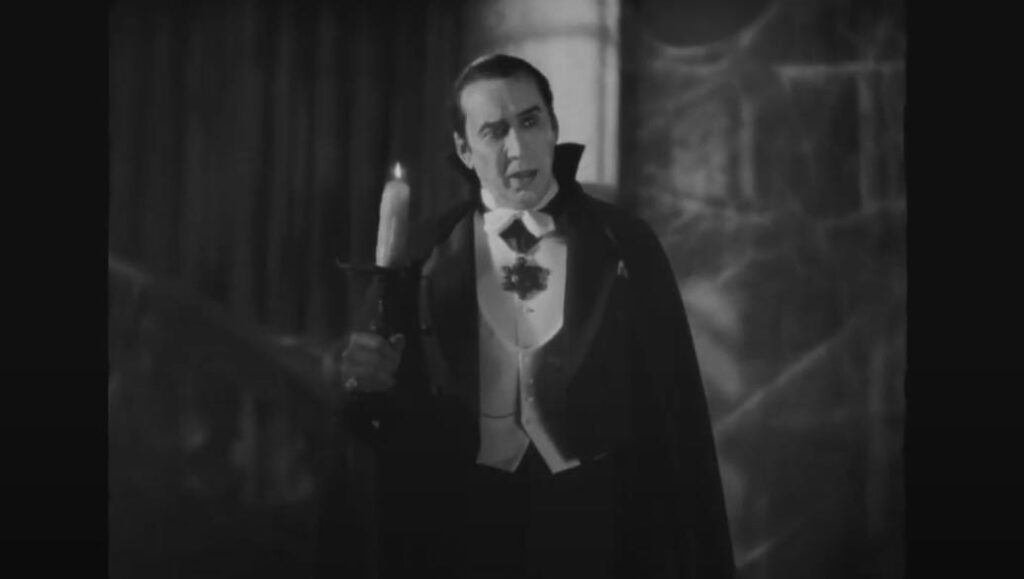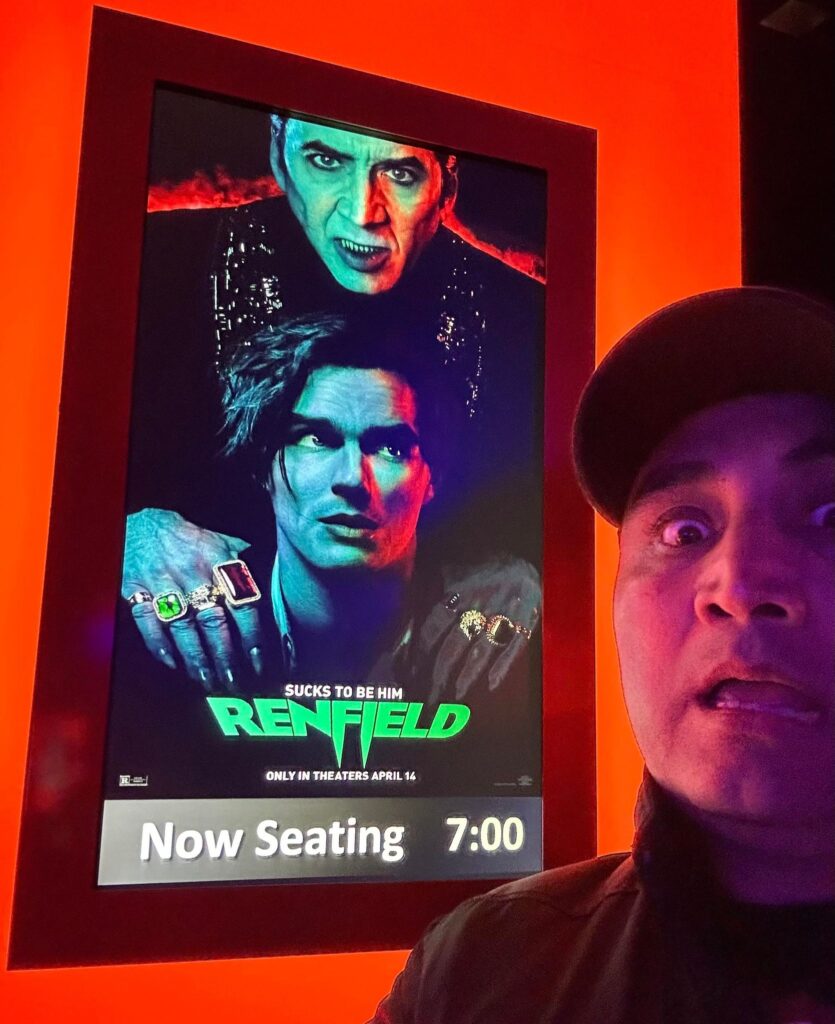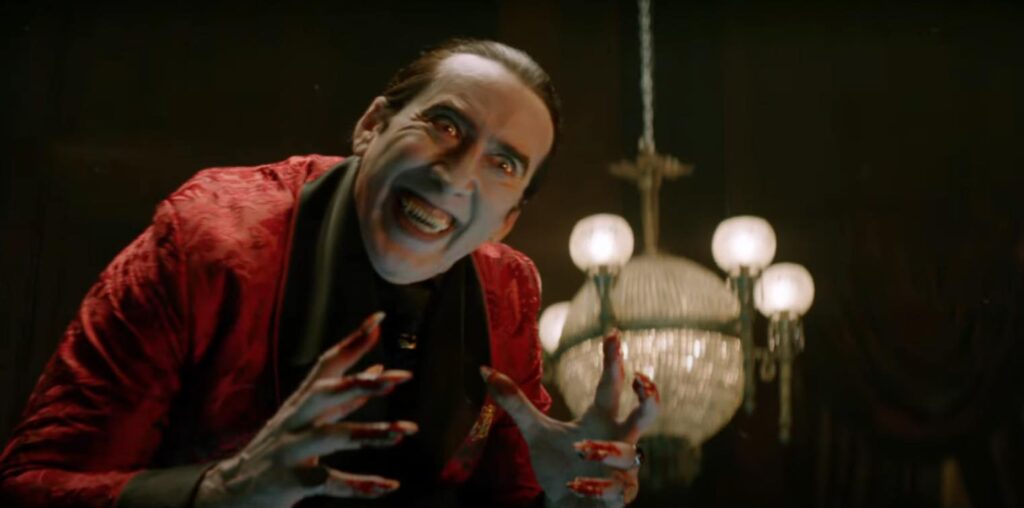By Mike Lera
For us die hard fans of the classic 1931 Dracula, many of us felt sympathy for a certain innocent, good-hearted real estate lawyer named Renfield, plucked from his happy life by the Lord of Vampires, turned into an insect-craving madman forced to serve the count, then abruptly “killed” by him in the end. Sheesh, talk about a drag for this poor soul!
Ah, but alas, just as we’ve seen countless films of the notorious nosferatu, Dracula, we now have a chapter dedicated exclusively to his creepy, deranged spider-eating slave, Renfield, which opened in theaters this weekend.
Set in present day New Orleans, the action-horror-comedy begins with R.M. Renfield (played by British actor Nicholas Hoult) attending a recovery meeting. No, not Bug Eaters Anonymous, but a program for codependency. After decades of being a devoted servant to Prince Vladimir Dracula (played by Nicholas Cage) and bringing innocent victims to his bloodthirsty master, Renfield understandably develops a conscience and wants out! However, like most codependents, he just can’t bring himself to leave this toxic relationship, and thus tries to appease his deep yearn to “do good” while continuing to aid his narcissistic boss. Renfield’s plan: Wrangle all the “bad people” his fellow co-dependents are attached to and, with his iconic sinister laugh, deliver them to his monster – UberEats style!
But as he sets out to accomplish this task – gobbling up bugs and insects that give him superhuman strength (picture Popeye eating Spinach) – he ends up knocking off the main hitman of a major crime syndicate, the Lobo family, and is soon hunted by gangster Teddy Lobo (Ben Schwartz) and his crime boss mom, Bellafrancesca (Shohreh Aghdashloo). Renfield then teams up with an over ambitious policewoman, Rebecca Quincy (Awkwafina), who wishes to bring down the Lobo family for killing her father, her and Renfield forging an awkward, semi-romance along the way. Count Dracula, meanwhile, becomes incensed at Renfield’s sudden change of heart toward their partnership, his loyal ally wielding a weapon far more powerful than any crucifix or garlic necklace – his recovery book on self care. Not only does Dracula want to destroy Renfield for his betrayal, but plans to create hundreds of “Bad Renfields” by biting the necks of the Lobo’s gangsters, including Teddy. Mobster monsters, essentially. Dracula‘s ultimate target becomes Rebecca, who, like Renfield, has pure blood and would make the ideal servant. Unless, of course, Renfield has anything to say!



Overall, Renfield is a clever and witty take on the Dracula story, its main centerpiece entailing black and white recreated scenes from the 1931 Tod Browning classic in which Cage and Hoult are simulated as Bela Lugosi and Dwight Frye, offering us a clear visual on how Renfield is a direct spin-off from the famous film. A bold and risky move on director Chris McKay‘s part, given the sacredness of Browning’s masterpiece. However, because of Cage’s excellent portrayal of the count, and, well, because it’s a comedy, the crafty Renfield gets away with it and delivers a respectful homage. The film also gives us a fresh new view and empathy for the character, providing a warm backstory that involves Renfield having a wife and child whom he misses dearly.
The film does tend to get formulaic and predictable in spots, morphing into an all too familiar crime drama, complete with main (human) villains coming off as flat and unnecessary characters who are “just there”. Cage definitely sinks his fangs into the role and seems the right fit for the cape, yet his dialogue is at times verbose and overdone (though overdramatizing is one of Cage’s trademarks). Equally bothersome are comedic scenes filled with corky lines and laughs for the sake of laughs, and while Renfield IS part comedy and part action, having cool John Wick-like fight sequences with Renfield taking on a superhero-esque persona (a la Blade), the movie lacks the scares, thrills and chills that most Dracula groupies expect. The film would have benefited more had it been done in the same vein as other vampire horror comedies like What We Do In The Shadows, or the 80’s classics The Lost Boys and Fright Night.
Yet amidst the gore and gags, the story stays consistent with a deep moralistic theme throughout: Face your monsters!

